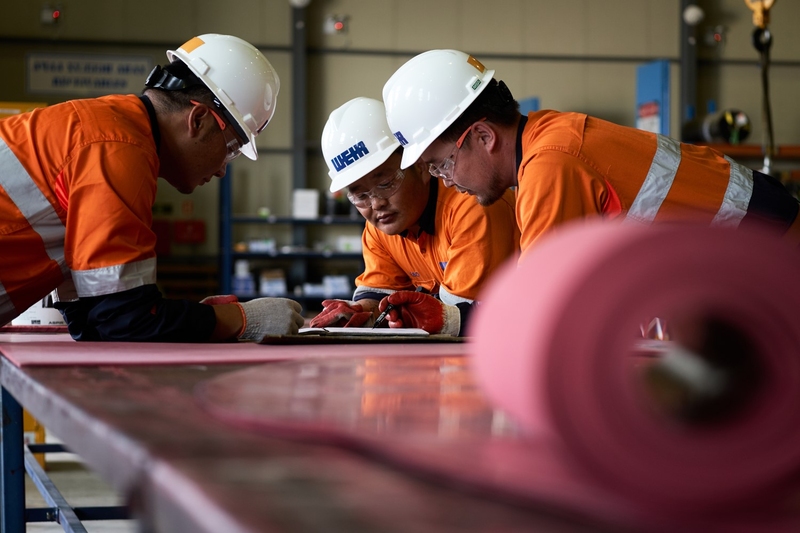Mongolia’s mining industry has long been recognized as the backbone of the national economy, contributing significantly to GDP, exports, and employment. With rich reserves of copper, coal, gold, and rare earth minerals, the sector continues to attract foreign investment and multinational partnerships. However, one of the most compelling aspects of the industry today is the high earning potential it offers for both local and international professionals.
For skilled workers, engineers, geologists, project managers, and executives, salaries in mining often exceed national averages by a large margin. This blog provides a comprehensive guide to why mining careers are lucrative in Mongolia, what roles command the highest salaries, and what professionals should consider when exploring opportunities in the sector.
1. Why the Mining Industry in Mongolia Offers Higher Salaries
Mining companies in Mongolia are often in competition for scarce talent. Skilled professionals with technical expertise, international project experience, or leadership capabilities are in high demand. Several factors drive higher salaries in the sector:
Skill Shortages – The mining industry requires specialized knowledge in geology, metallurgy, engineering, environmental sciences, and project management. With limited supply of such talent locally, wages increase to attract and retain professionals.
International Standards – Many mining operations are led by joint ventures or multinational companies that align salaries with global benchmarks, rather than strictly with local averages.
Remote Work Conditions – Mining sites are often located in remote areas such as the Gobi Desert, requiring rotational shifts, long hours, and challenging living conditions. Higher pay compensates for these factors.
Economic Importance – Given that mining is Mongolia’s primary source of export revenue, companies are under pressure to ensure efficiency, productivity, and workforce stability—further fueling competitive compensation packages.
2. Roles with the Highest Salary Potential in Mongolia’s Mining Sector
While salaries vary depending on experience, employer, and project size, some positions consistently rank as high-paying:
Executive and Leadership Roles
General Managers & Country Directors – Often expatriates or seasoned locals with 15+ years of experience, earning significantly above $100,000 annually.
Project Directors – Oversee large-scale mining operations and expansions, commanding salaries comparable to executives in global mining hubs.
Technical Specialists
Mining Engineers – Among the most in-demand roles, with mid-career professionals earning multiples of the national average.
Geologists & Exploration Experts – Salaries are high due to the crucial role they play in resource identification and reserve estimation.
Metallurgists & Processing Engineers – Specialists in refining and extraction processes are rare and highly compensated.
Operational & Support Roles
Health & Safety Managers – With increasing regulatory focus on safety, these roles are both vital and well-paid.
Environmental Managers – As sustainability becomes a top priority, professionals in environmental compliance and community relations earn premium packages.
Heavy Equipment Operators – Skilled operators of large trucks, excavators, and drills often enjoy salaries above average for non-degree positions.
3. Salary Ranges in Context
While exact salaries depend on company and project type, industry benchmarks indicate:
Entry-level engineers/geologists: $1,200 – $2,500 per month
Mid-level technical staff: $3,000 – $5,500 per month
Senior engineers/managers: $6,000 – $10,000 per month
Executives/Directors: $100,000+ annually, often with benefits such as housing, travel, and insurance
By comparison, Mongolia’s average monthly salary across all industries is around $600–800, meaning mining roles can pay up to 10 times the national average.
4. The Rise of Expatriate and Local Talent Collaboration
Mongolia’s mining industry is unique in that it combines international expertise with local workforce development. Multinational firms often import senior talent initially, but gradually increase the proportion of skilled local employees. This trend creates both opportunities and challenges:
For expatriates: High salaries remain a draw, but competition with rising local talent is increasing.
For Mongolians: Opportunities for professional development, global training programs, and leadership succession are creating career paths that rival international opportunities.
5. Challenges and Considerations
High salaries come with responsibilities and trade-offs:
Remote Site Living – Most mining projects are far from Ulaanbaatar, requiring weeks of site-based work followed by rest periods.
Work-Life Balance – Demanding schedules and long shifts can make balancing family life challenging.
Economic Cycles – Mining is cyclical, with salaries and job stability linked to global commodity prices.
Skill Development – Professionals must continuously upgrade skills in automation, digital mining technologies, and sustainability to remain competitive.
6. Long-Term Outlook: Salaries and Opportunities to 2030
Looking ahead, Mongolia’s mining industry will continue to be a source of high-paying jobs. Key drivers include:
Expansion of Copper and Rare Earth Projects – Driven by global demand for green energy and EV batteries.
Technology and Automation – Roles related to digital mining, AI-based exploration, and automated machinery will offer premium salaries.
Sustainability Focus – As ESG (Environmental, Social, Governance) standards tighten, specialists in environmental management and community engagement will see strong demand.
Localization of Talent – Training and development programs will expand opportunities for Mongolian professionals to move into higher-salary leadership positions.
7. Career Strategies for Professionals Seeking Mining Salaries
To maximize earning potential, professionals should consider:
Upskilling – Pursue certifications in mining software, safety standards, or international project management.
Networking – Build connections with industry associations and recruitment firms specializing in mining talent.
Flexibility – Be open to rotational shifts or relocation, which often come with premium pay.
Target Employers Strategically – Focus on multinational operators and established local firms with stable projects.
Mongolia’s mining sector is not only the cornerstone of the national economy—it is also a career path that offers some of the highest salaries in the country. For both expatriates and Mongolian professionals, opportunities exist across executive, technical, and operational roles. While the industry demands resilience, adaptability, and continuous skill development, the rewards are significant.
For ambitious professionals, aligning skills with the needs of mining companies can be the key to achieving long-term financial and career success in Mongolia’s most vital industry.


